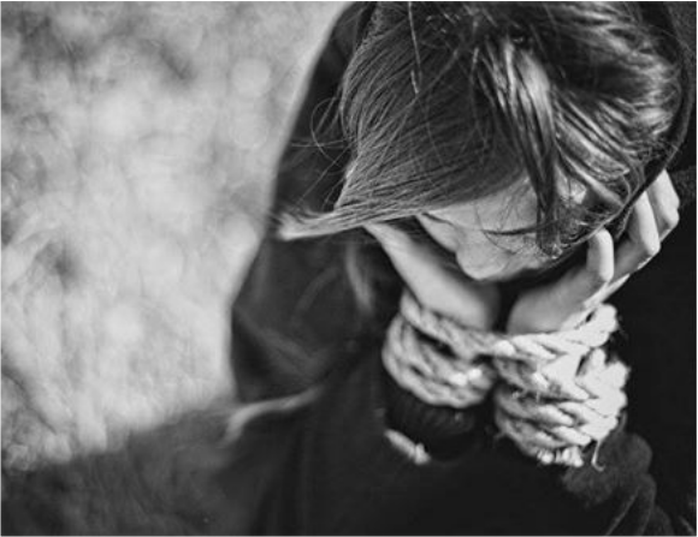
"'I really would like to help you, but my hands are tied' is one of those responses which would have done Pontius Pilate, the fifth prefect of the Roman province of Judaea, justice. So many of us find it easier in our lives, when faced with inconvenient circumstances that we can neither stomach nor condone, to wash our hands of all responsibility and turn the other way.
We are all guilty of such action from time to time. Indeed, it could be argued to be a basic instinct of survival. Some might even say that were we not able to emotionally detach ourselves sometimes from the plight and struggle of others, we would drive ourselves into a pit of remorse and guilt because we had more than some other needier individual.
It might also be argued, that because the action of no single human can ever bring world peace, feed the planet, house all the homeless or service the sick, that this is an excuse for any individual to do nothing. It isn't! While we may not hold any individual responsibility to provide for all, we do have the responsibility to take from none; and even if we are unable to make one person in the world better, it is simply inhuman to make the circumstances of any person worse and their struggle for survival, greater.
Trade tariffs, employing third-world labour at minimal cost, the destruction of healthy food surplus in order to maintain market prices at their highest, and the farming/manufacturing subsidies of richer economies to their own work force to the economic detriment of less well-off countries, are all modern-day means of depressing the poor of the world while enriching wealthier nations. Discrimination, racism, intolerance and nonacceptance are other means of hurting instead of helping.
In short, we often find it convenient to believe that our hands are tied and that we are helpless to intervene with any significant difference. To believe this is so wrong; it is so misguided a view to hold and is too pessimistic a purpose to follow.
Where does one person begin to help another, we might ask? First, I believe it is our human responsibility to acknowledge the plight of all, even if we choose not to march in protest or do anything concrete to ameliorate it. Next, there is no point of believing in the power of prayer if we do not pray for those in need. At the very least, we can give our verbal support to their situation. It helps another in dire circumstances to know that they do not stand alone, far more than we could ever imagine. I always remember the late Nelson Mandela saying in his autobiography, how much it sustained him during his 28-year's incarceration on Robben Island when he received one particular postcard of support reminding him that the world had not forgotten his ordeal. The postcard arrived during a moment when his will to carry on was at its weakest; at the most opportune moment in his lengthy sentence, when his morale was starting to wane.
Giving of ourselves not only helps others; it also helps us to give. Between 1989 and 2005, I visited over 2,000 Yorkshire schools to hold reading assemblies, During this time, I was left in no doubt as to the most important lesson taught in our schools by the teachers to their classes of children. It wasn't English, Maths, History, Geography or any other of the subjects on the educational curriculum. The single most important lesson that all school teachers taught their young pupils in every school I ever entered was the 'value of giving to those less well off than ourselves.'
Never once did one week pass by when I didn't see some class or group of school children collect money for some charitable cause, whether the school was in a wealthy area or an economically depressed one of high employment. Their concerted action of generosity reminded me forcefully, that it is only through the giving of ourselves and what we have, to others who are less fortunate than we are, that we become the good person we are meant to be.
We should, wherever possible, give our time, our support and our money in the many countless appeals for help that daily surround us. It may be adopting the simple practice of placing a twenty-pence piece or our loose coppers in the charity box on the counter of the shop we daily frequent, giving our surplus clothes and belongings to charity shops to sell, setting up some small monthly donation for a few pounds to provide clean water to some village that has none, or even giving a few hours a week to some charity organization or help group for the disabled and disadvantaged etc. I would even include giving a listening ear to a troubled person and a genuine attempt to understand their feelings as representing a valuable gift.
There is so much that we could opt to do once we choose to unpick the psychological rope of convenience that ties our hands.The time has come to stop sitting on them; the time to untie them is now!" William Forde: October 22nd, 2016
